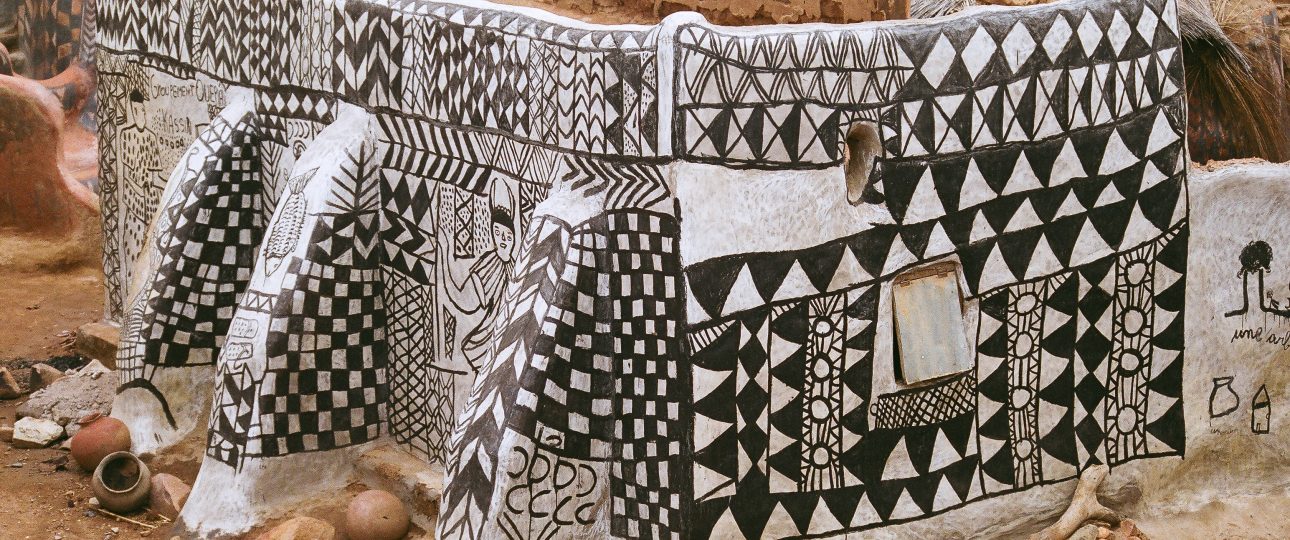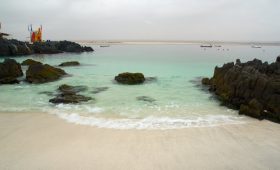Exploring Tiébélé Village
Located 30 kilometers southeast of Pô, Tiébélé is a fascinating village in Burkina Faso, renowned for its unique architecture and cultural heritage. As the administrative center of the Tiébélé department in the Nahouri province, this village is a significant cultural site for the Kassena people, who have inhabited the area since the 16th century. The village is near the border with Ghana, making it an accessible destination for those traveling through West Africa.
Architectural Marvels
Tiébélé is celebrated for its traditional Kassena architecture, particularly the royal compound, which is the largest of its kind in the region. The houses are constructed from mud and feature intricate geometric patterns painted with natural pigments. These designs are not merely decorative; they convey stories and cultural symbols. The architecture is a communal effort, with women of the village playing a crucial role in building and maintaining these structures.
Cultural Significance
The village is divided into several zones, each with its own purpose and significance. The princely domain, where the royal family resides, is a highlight. Each type of house serves a specific role in the community: the round Draa houses are for single men, the Dinian houses, shaped like a figure-eight, are for elderly couples and their grandchildren, and the Mangolo houses are for newlyweds. These structures reflect the life stages of the Kassena people.
Symbolic Artistry
The motifs on the houses are rich with meaning. Cross-shaped lines represent nets for storing calabashes, upward-pointing arrows symbolize hunting and defense, and canes denote respect and authority. Totemic animals like serpents and lizards are also depicted, representing ancestral visits and life, respectively. The use of colors is symbolic too: white for death, black for the earth, and red for strength and power. The small doorways, about 80 centimeters high, serve a practical purpose, allowing residents to identify visitors as friends or foes.
Visiting Tiébélé
Best Time to Visit
The ideal time to visit Tiébélé is during the dry season, from November to February, when the weather is more comfortable for exploring. However, this is also the peak tourist season, so expect more visitors during this period.
Getting There
The most convenient way to reach Tiébélé is by flying into Ouagadougou International Airport, the capital of Burkina Faso. From there, you can hire a private car or take a local bus to the village, which is approximately a three-hour drive, depending on road conditions. For those seeking adventure, traveling by land from neighboring towns is an option, though the roads can be challenging.
Exploring the Village
Once in Tiébélé, the best way to explore is on foot. The village’s compact layout allows for leisurely walks through its narrow streets. Wear comfortable shoes and bring sun protection, as the sun can be intense.
Points of Interest
- The Royal Compound: This area is a must-see for its architectural beauty and cultural significance.
- The Sacred Grove: A spiritual site where the Kassena people conduct rituals and ceremonies.
- Local Artisans: Visit workshops to see traditional crafts like pottery and textiles being made.
Tiébélé offers a unique glimpse into the rich cultural tapestry of the Kassena people. While the village’s remote location and basic amenities might pose challenges, the experience of witnessing such a vibrant and well-preserved culture is well worth the journey.




